Are you considering shipping from Guangzhou to Boston but unsure where to start? Navigating the complexities of international logistics can be daunting.
In this comprehensive guide, we will explore essential aspects of your shipment journey, from shipping methods such as sea freight and air freight to understanding costs and customs clearance. By the end of this blog, you’ll gain valuable insights to ensure a smooth and efficient shipping experience. Let’s dive into the key routes, costs, and best practices for shipping from Guangzhou to Boston!
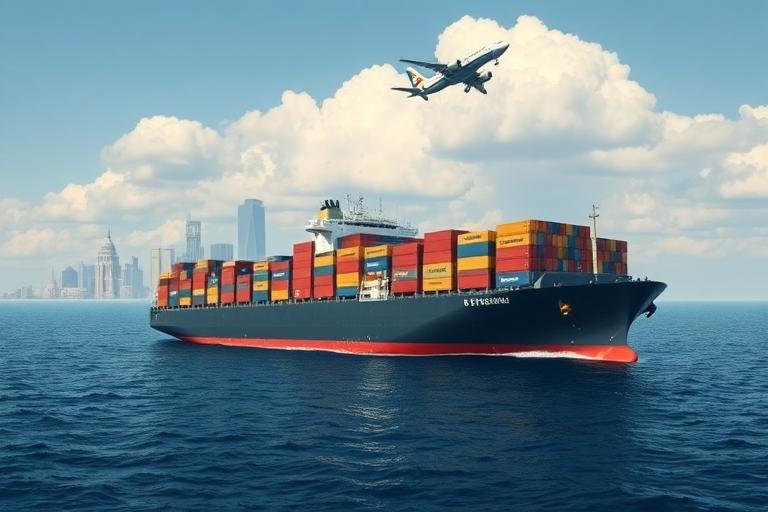
Key Routes Between Guangzhou and Boston
When considering shipping from Guangzhou, a bustling hub in southern China, to Boston, a key city in the northeastern United States, it is essential to be aware of the primary routes that connect these two locations. The most common shipping routes typically involve major maritime and air corridors.
For sea freight, vessels often navigate through the South China Sea, passing through the Taiwan Strait before entering the Pacific Ocean. These routes are designed to optimize transit times while ensuring the safe delivery of goods. Major ports involved in these routes include the Port of Los Angeles and the Port of Seattle, both of which serve as transshipment hubs for cargo moving to the East Coast. For more information on major ports, you can check out the biggest ports in the us.
On the other hand, air freight routes are more direct, with cargo planes flying over the Pacific Ocean, often making stops in hub cities like Los Angeles or San Francisco before reaching Boston Logan International Airport. This route is preferred for high-value or time-sensitive shipments due to its shorter transit time compared to sea freight. For details on air freight costs, visit air freight from china to usa.
Understanding these routes is crucial for importers in planning their logistics strategy and selecting the most efficient shipping method.
Shipping Methods from Guangzhou to Boston
Sea Freight from Guangzhou to Boston
Sea freight is one of the most cost-effective methods for shipping goods internationally, especially for large volumes. When shipping from Guangzhou to Boston, you can choose between Full Container Load (FCL) and Less than Container Load (LCL) services. For more information on what these terms mean, visit what is lcl and fcl in shipping:
- FCL is ideal for businesses that can fill an entire container, as it reduces per-unit shipping costs. Typically, a standard 20-foot container can hold approximately 28,000 to 30,000 pounds, making it suitable for bulk shipments.
- LCL is advantageous for smaller shipments that do not require a full container. This method allows multiple shipments from different customers to share container space, thereby lowering costs.
Generally, the transit time for sea freight from Guangzhou to Boston ranges from 30 to 45 days, depending on the specific routing and any potential delays at ports. For pricing insights, see how much is ocean freight from china.
Air Freight from Guangzhou to Boston
Air freight offers a faster alternative to sea freight, making it the preferred choice for urgent shipments. The transit time for air freight from Guangzhou to Boston is typically around 5 to 7 days, significantly quicker than sea options.
Air freight is especially beneficial for high-value items, electronics, or perishable goods that require prompt delivery. However, it is important to note that shipping via air can be significantly more expensive than sea freight, thus requiring careful cost analysis. For comprehensive details on different shipping methods, refer to Shipping From China to USA.
Dantful International Logistics offers both sea and air freight services tailored to meet your shipping needs from Guangzhou to Boston. Our expertise in handling various types of cargo ensures that your shipments are managed efficiently, regardless of the chosen method. For more information about our services, visit Dantful International Logistics.
Shipping Costs from Guangzhou to Boston
2025 Sea Freight Cost Analysis (FCL/LCL)
In 2025, shipping costs from Guangzhou to Boston via sea freight are expected to fluctuate based on various elements such as fuel prices, shipping demand, and global economic conditions. Below is a comparative analysis of the costs associated with Full Container Load (FCL) and Less than Container Load (LCL) shipments:
| Container Type | Estimated Cost (USD) | Typical Transit Time | Key Considerations |
|---|---|---|---|
| FCL (20ft) | $3,000 – $4,500 | 25 – 35 days | Best for large shipments; lower cost per unit. |
| FCL (40ft) | $4,500 – $6,000 | 25 – 35 days | Ideal for bulkier shipments; economies of scale. |
| LCL | $300 – $700 per CBM | 30 – 40 days | Suitable for smaller shipments; pay only for space utilized. |
Source: Shipping industry analysis reports and freight cost calculators.
Understanding Air Freight Pricing from Guangzhou to Boston
Air freight costs are typically higher than sea freight due to the speed and convenience they offer. The pricing structure for air freight is usually based on the dimensional weight and the actual weight of the shipment. As of 2025, here are key factors affecting air freight pricing from Guangzhou to Boston:
- Weight: Heavier shipments cost more.
- Volume: Larger packages may incur additional charges based on dimensional weight.
- Fuel Surcharges: Fluctuating fuel prices can impact overall costs.
- Seasonality: Peak seasons, especially around holidays, may lead to increased rates.
A rough estimate for air freight costs from Guangzhou to Boston is around $5.00 – $10.00 per kg, dependent on the aforementioned factors.
Hidden Fees to Watch Out For
When shipping goods from Guangzhou to Boston, it is crucial to be aware of potential hidden fees that can significantly add to your overall costs. Common hidden fees include:
- Terminal Handling Charges (THC): Fees for loading and unloading cargo at ports.
- Documentation Fees: Charges for processing shipping documents.
- Inland Transportation Costs: Additional charges for moving cargo from the port to its final destination.
- Customs Clearance Fees: Fees incurred for clearing goods through customs.
Working with a reputable freight forwarder like Dantful International Logistics can help identify and mitigate these unexpected costs.
How to Reduce Customs Duties with Freight Forwarder Assistance
Navigating customs duties can be complex, but partnering with an experienced freight forwarder can help reduce these costs. Here are strategies to minimize customs duties:
- Valuation Methods: Understanding the correct valuation method for your goods can lead to lower duties.
- Classification of Goods: Accurate classification under the Harmonized Tariff Schedule can help avoid unnecessary penalties.
- Free Trade Agreements (FTAs): Leveraging FTAs can significantly reduce or eliminate duties on eligible goods.
By utilizing the expertise of Dantful International Logistics, you can ensure that your shipments from Guangzhou to Boston comply with regulations while minimizing customs expenses effectively.
READ MORE:
- Shipping From China to the USA
- Shipping From China TO Canada
- Shipping From China TO Mexico
- Shipping From China to Panama
- Shipping From China to Costa Rica
- Shipping From China to Brazil
- Shipping From China TO Colombia
- Shipping From China to Jamaica
- Shipping From China to Venezuela
- Shipping From China to Argentina
Shipping Times from Guangzhou to Boston
Sea Freight Transit Times
The average transit time for sea freight from Guangzhou to Boston is approximately 25 to 35 days. However, this timeline can vary based on several factors, including:
- Port Congestion: High traffic at ports can delay shipment processing.
- Weather Conditions: Adverse weather can impact shipping schedules.
- Route Variability: Different shipping lines may have varying routes with differing transit times.
Air Freight Transit Times
Air freight is considerably faster than sea freight, with average transit times from Guangzhou to Boston ranging from 5 to 10 days. Factors influencing air freight times include:
- Flight Availability: Regular flights can expedite the shipping process.
- Customs Clearance: Efficient customs handling can minimize delays.
Factors Affecting Delivery Times
Several elements can influence the overall delivery times when shipping from Guangzhou to Boston:
- Mode of Transport: As previously mentioned, sea freight generally takes longer than air freight.
- Customs Procedures: The efficiency of customs clearance processes is critical.
- Distance and Routing: Shipping routes directly affect transit times, with some routes offering faster service than others.
By understanding these factors, businesses can better plan their logistics strategies when importing goods from Guangzhou to Boston. Partnering with Dantful International Logistics ensures that you benefit from our expertise in optimizing shipping routes and timelines.
Choosing a Reliable Freight Forwarder for Your Shipment
When shipping goods from Guangzhou to Boston, selecting a reliable freight forwarder can significantly impact the efficiency and cost-effectiveness of your shipment. Here are the key aspects to consider when choosing a freight forwarder:
Key Qualities to Look for in a Freight Forwarder
Experience and Expertise: A freight forwarder with extensive experience in international shipping, particularly between China and the U.S., will be more adept at navigating complex logistics and customs regulations. Look for companies that specialize in your specific type of cargo.
Network and Resources: A solid network of carriers and strategic partnerships allows freight forwarders to offer competitive rates and flexible shipping options. Verify whether they have established relationships with ocean and air carriers.
Comprehensive Services: Choose a freight forwarder that provides a full range of services, including ocean freight, air freight, customs clearance, and warehouse management. Dantful International Logistics specializes in these areas, ensuring a one-stop solution for your shipping needs.
Transparent Pricing: A trustworthy freight forwarder should provide clear and detailed quotes, outlining all applicable charges. This transparency helps prevent unexpected fees and allows you to budget accurately.
Compliance Knowledge: Ensure that the freight forwarder is knowledgeable about the customs clearance process and can assist with all required documentation, tariffs, and taxes.
Questions to Ask Potential Freight Forwarders
- What is your experience in shipping from Guangzhou to Boston?
- Can you provide references from similar customers or industries?
- What technologies or tools do you use to track shipments?
- How do you handle customs clearance and documentation?
- What insurance options do you offer for cargo protection?
- Are there any additional fees or charges that I should be aware of?
The Importance of Customer Service and Support
Excellent customer service is a hallmark of a reliable freight forwarder. Choose a company that offers:
Responsive Communication: Timely updates and quick responses to inquiries can alleviate shipping-related worries.
Proactive Problem Solving: A dependable freight forwarder should be able to address issues as they arise, such as delays or customs complications, and communicate these effectively.
Personalized Support: Look for a forwarder that tailors its solutions to meet your specific needs and is willing to provide guidance throughout the shipping process.
Customs Clearance Process for Shipping to Boston
Navigating the customs clearance process is a crucial step in shipping from Guangzhou to Boston. Understanding the requirements can help ensure a smooth transition for your goods.
Required Documentation for Smooth Clearance
To clear customs effectively, you will need to prepare and submit various documents, including:
Commercial Invoice: A detailed invoice that includes the description, value, and quantity of the goods being shipped.
Bill of Lading: A document issued by the carrier that serves as a receipt for the shipment and outlines the terms of transportation.
Packing List: Provides details on how the goods are packed and their specifications.
Import License: Certain goods may require an import license for entry into the U.S.
Customs Declaration: A form submitted to U.S. Customs and Border Protection (CBP) outlining the shipment details.
Understanding Tariffs and Taxes
When importing goods into the U.S., it is essential to be aware of applicable tariffs and taxes. The specific rates depend on the nature of the goods, their classification under the Harmonized Tariff Schedule (HTS), and their country of origin. Working with a knowledgeable freight forwarder like Dantful International Logistics can help you navigate these complexities and minimize unforeseen costs.
Tips for Successful Shipping from Guangzhou to Boston
To optimize your shipping experience, consider the following best practices:
Best Practices for Packaging and Labeling
Use Durable Packaging: Ensure that your products are packaged securely to withstand transit conditions. Choose materials that are waterproof and resistant to damage.
Label Clearly: Proper labeling helps speed up the customs clearance process and ensures that your shipment is easily identifiable. Use clear and legible fonts and include all necessary information such as consignee details and handling instructions.
Navigating Import Regulations in the U.S.
Familiarize yourself with U.S. import regulations to avoid any potential pitfalls. This includes understanding product restrictions, safety standards, and labeling requirements. Engaging a professional freight forwarder can be invaluable in ensuring that your shipments comply with all necessary regulations, thus preventing costly delays or fines.
In summary, choosing a reliable freight forwarder, understanding the customs clearance process, and adhering to best practices for packaging and regulatory compliance are critical components for successful shipping from Guangzhou to Boston. Dantful International Logistics is here to provide you with expert guidance and support throughout your shipping journey.

Young Chiu is a seasoned logistics expert with over 15 years of experience in international freight forwarding and supply chain management. As CEO of Dantful International Logistics, Young is dedicated to providing valuable insights and practical advice to businesses navigating the complexities of global shipping.





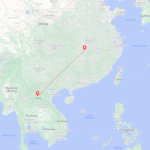
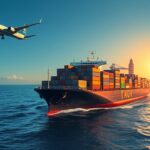

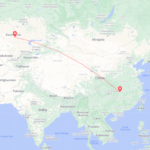
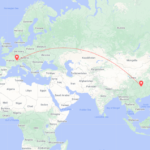
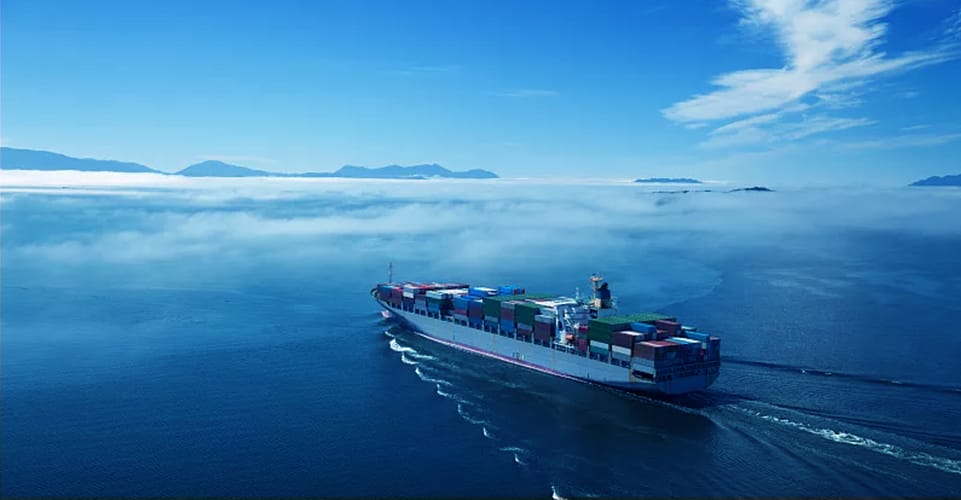

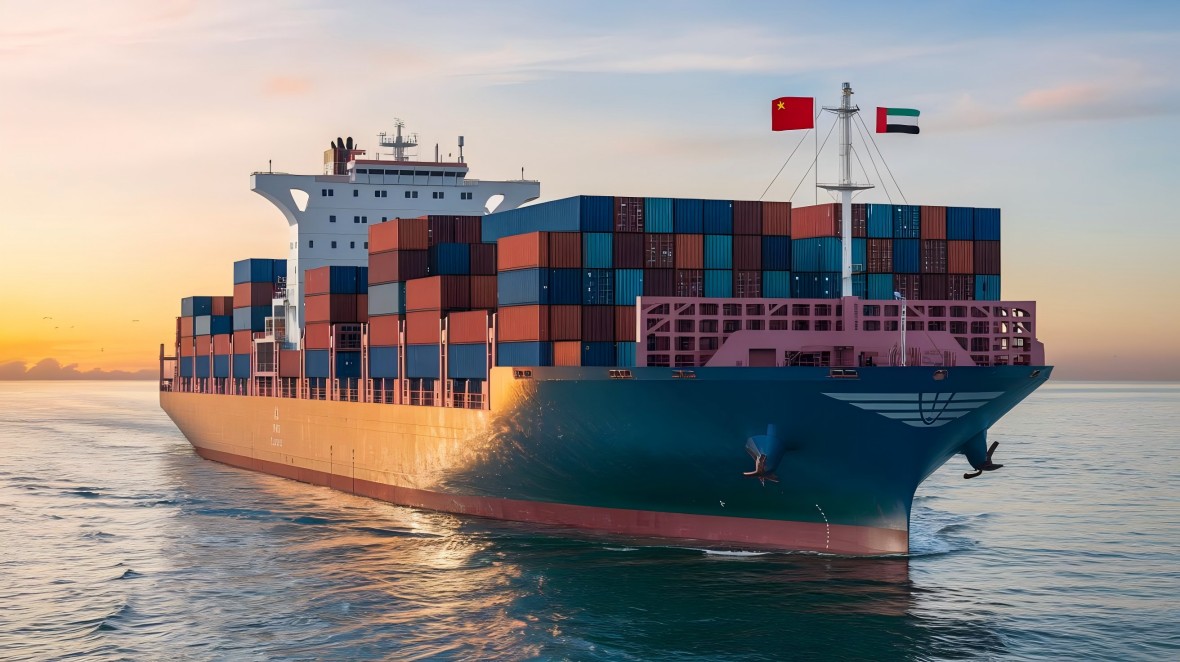







 Afrikaans
Afrikaans Shqip
Shqip አማርኛ
አማርኛ العربية
العربية Հայերեն
Հայերեն Azərbaycan dili
Azərbaycan dili Euskara
Euskara Беларуская мова
Беларуская мова বাংলা
বাংলা Bosanski
Bosanski Български
Български Català
Català Cebuano
Cebuano Chichewa
Chichewa 简体中文
简体中文 繁體中文
繁體中文 Corsu
Corsu Hrvatski
Hrvatski Čeština
Čeština Dansk
Dansk Nederlands
Nederlands English
English Esperanto
Esperanto Eesti
Eesti Filipino
Filipino Suomi
Suomi Français
Français Galego
Galego ქართული
ქართული Deutsch
Deutsch Ελληνικά
Ελληνικά Kreyol ayisyen
Kreyol ayisyen Harshen Hausa
Harshen Hausa Ōlelo Hawaiʻi
Ōlelo Hawaiʻi עִבְרִית
עִבְרִית हिन्दी
हिन्दी Hmong
Hmong Magyar
Magyar Íslenska
Íslenska Igbo
Igbo Bahasa Indonesia
Bahasa Indonesia Gaeilge
Gaeilge Italiano
Italiano 日本語
日本語 Basa Jawa
Basa Jawa ಕನ್ನಡ
ಕನ್ನಡ Қазақ тілі
Қазақ тілі ភាសាខ្មែរ
ភាសាខ្មែរ 한국어
한국어 كوردی
كوردی Кыргызча
Кыргызча ພາສາລາວ
ພາສາລາວ Latin
Latin Latviešu valoda
Latviešu valoda Lietuvių kalba
Lietuvių kalba Lëtzebuergesch
Lëtzebuergesch Македонски јазик
Македонски јазик Malagasy
Malagasy Bahasa Melayu
Bahasa Melayu മലയാളം
മലയാളം Maltese
Maltese Te Reo Māori
Te Reo Māori मराठी
मराठी Монгол
Монгол ဗမာစာ
ဗမာစာ नेपाली
नेपाली Norsk bokmål
Norsk bokmål پښتو
پښتو فارسی
فارسی Polski
Polski Português
Português ਪੰਜਾਬੀ
ਪੰਜਾਬੀ Română
Română Русский
Русский Samoan
Samoan Gàidhlig
Gàidhlig Српски језик
Српски језик Sesotho
Sesotho Shona
Shona سنڌي
سنڌي සිංහල
සිංහල Slovenčina
Slovenčina Slovenščina
Slovenščina Afsoomaali
Afsoomaali Español
Español Basa Sunda
Basa Sunda Kiswahili
Kiswahili Svenska
Svenska Тоҷикӣ
Тоҷикӣ தமிழ்
தமிழ் తెలుగు
తెలుగు ไทย
ไทย Türkçe
Türkçe Українська
Українська اردو
اردو O‘zbekcha
O‘zbekcha Tiếng Việt
Tiếng Việt Cymraeg
Cymraeg יידיש
יידיש Yorùbá
Yorùbá Zulu
Zulu